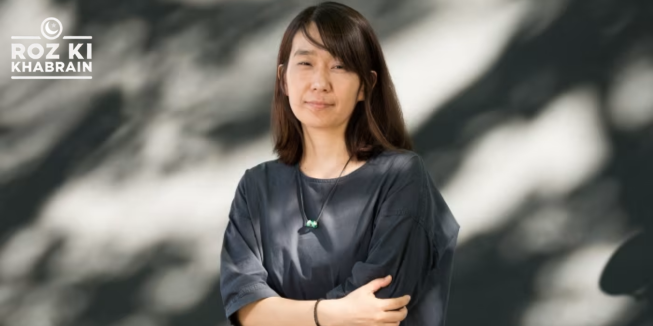South Korean author Han Kang has been awarded the 2024 Nobel Prize in Literature for “her intense poetic prose that confronts historical traumas and exposes the fragility of human life,” as announced by the awarding body on Thursday.
The prize, presented by the Swedish Academy, comes with a monetary award of $1.1 million.
Anders Olsson, chairman of the academy’s Nobel Committee, stated, “She possesses a unique awareness of the connections between body and soul, the living and the dead, and through her poetic and experimental style, she has become an innovator in contemporary prose.”
Han Kang is the first South Korean to receive this prestigious literary honor. She began her career in 1993 by publishing poetry in the magazine Literature and Society, while her prose debut came in 1995 with the short story collection Love of Yeosu. Her significant international breakthrough occurred with her novel The Vegetarian.
Prior to the announcement, bookmakers’ favorites included Chinese writer Can Xue and perennial contenders like Kenya’s Ngugi Wa Thiong’o, Australia’s Gerald Murnane, and Canada’s Anne Carson.
The Nobel Prize in Literature is the most accessible of the Nobel awards for many people, often receiving both praise and criticism in equal measure. The Academy’s historical oversight of literary giants such as Russia’s Leo Tolstoy, France’s Émile Zola, and Ireland’s James Joyce has puzzled many literature enthusiasts over the last century.
The decision to award the 2016 prize to American singer-songwriter Bob Dylan was seen as a radical rethinking of literature but also viewed as a snub to more traditional authors.
The Academy has faced criticism for its overrepresentation of Western white male authors in its selections. Since a significant #MeToo scandal in 2018, the Swedish Academy has undergone major reforms, promising a more global and gender-equal literature prize.
Since then, it has honored four women, including Han, alongside Annie Ernaux from France, US poet Louise Glück, and Poland’s Olga Tokarczuk. The men awarded include Austrian author Peter Handke, Tanzanian writer Abdulrazak Gurnah, and Jon Fosse.
The Nobel Prizes, created through the bequest of Swedish dynamite inventor Alfred Nobel, have been awarded since 1901, with the economics prize being a later addition.
Following the peace prize, the literature award often garners significant attention, elevating authors into the global spotlight and leading to a temporary surge in book sales, particularly for those who are not yet widely recognized.
Nonetheless, the prize money and the opportunity to join the ranks of luminaries like Irish poet W.B. Yeats (1923), American novelist Ernest Hemingway (1954), and Colombian author Gabriel García Márquez (1982) make it an appealing honor. The 2023 award was given to Norwegian author and dramatist Jon Fosse.
The literature prize is the fourth to be announced each year, following those for medicine, physics, and chemistry revealed earlier this week.




